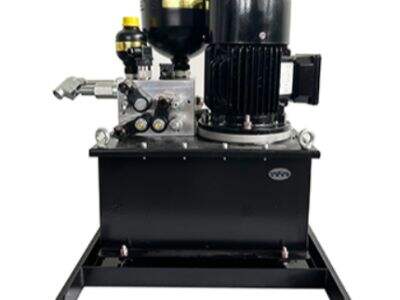One element of hydraulics also very important is filtration. Filtration is a process of purifying the fluid used in hydraulic systems. Such a cleaning is required in order for the system to function in a more efficient manner and in order for it to go on for many more years. In many industries, clean fluid translates to machines that run better – an advantage people in the industry do not want to think about losing.
The Role of Filtration in Hydraulic Systems
Hydraulic systems benefit in a number of ways from use of filtration. For starters, it protects any moving components from damage. Additionally, when the fluid is clean, fewer tiny pieces or dirt exist to break things. This implies that it will last longer and it can do a great job for a long period without requiring repairs. Keeping moving parts protected allows them to better do their jobs, and not disrupt the entire system from working properly.
Filtration is also very important to regulate the temperature of the fluid. Notably, the cleaner the fluid, the better and faster it can cool down. This helps avoid overheating the whole system. Too much heat in a hydraulic system is bad news and who needs that. Hot fluid can cause overheating and all of the problems that arise from it, which includes saving time, and money.
Why Filtration is Important
It is important for everyone to understand that filtration is one of the main features of hydraulic systems. If the fluid gets dirty, this will lead to major problems with vital cities, for instance, pumps and valves. These components are a necessity for the proper function of the hydraulic system. It can eventually reduce system efficiency, especially if you are using dirty fluid. That means it will function imperfectly, and repairing it can be quite costly.
The Effects Of Filtration On Hydraulic Devices
Filtration is extremely beneficial in safeguarding a wide range of hydraulic equipment components. It can protect seals, for instance. Seals play a key role in preventing leakages. They can leak damaging something and waste fluid. Also, filtration makes certain that the hydraulic fluid is both the appropriate height and viscosity. The wrong quantity of fluid, or a fluid of an incorrect viscosity, can result in `apparatus permanent damage to other system components.
Moreover, proper filtration allows for easier and quicker maintenance. When less stuff needs cleaning it takes less time to maintain the system well. This makes this particular equipment excellent for those involved with hydraulic engineering, as it reduces downtime and increases productivity in the work environment.
 EN
EN
 AR
AR
 FR
FR
 DE
DE
 HI
HI
 IT
IT
 JA
JA
 KO
KO
 PT
PT
 RU
RU
 ES
ES
 TR
TR







